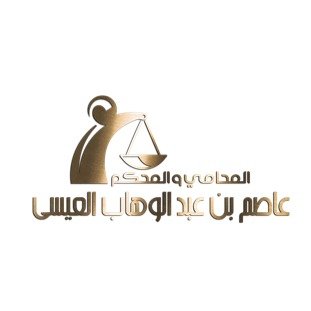Best Energy Regulatory Law Lawyers in Riyadh
Share your needs with us, get contacted by law firms.
Free. Takes 2 min.
List of the best lawyers in Riyadh, Saudi Arabia

About Energy Regulatory Law in Riyadh, Saudi Arabia
Energy Regulatory Law in Riyadh, Saudi Arabia, encompasses the legal framework governing the generation, distribution, and consumption of energy, including electricity, gas, and renewable energy sources. In recent years, Saudi Arabia has undergone significant transformation in its energy sector, marked by regulatory reforms and increased investment, especially as part of the Vision 2030 initiative. The laws and regulations are designed to promote competition, ensure reliable supply, encourage sustainable energy use, and protect both investors and consumers. The legal landscape is shaped by governmental oversight, primarily through national regulatory bodies that establish the rules of operation for all energy-related activities in the region.
Why You May Need a Lawyer
Energy Regulatory Law can be complex, and individuals or companies operating in the energy sector in Riyadh may find themselves in situations requiring expert legal assistance. Common reasons to consult an energy regulatory lawyer include:
- Applying for licenses and permits to operate energy-producing or distributing facilities
- Negotiating energy purchase agreements or contracts for supply
- Navigating compliance with evolving regulatory standards and environmental obligations
- Addressing regulatory enforcement actions, penalties, or disputes with authorities
- Managing mergers, acquisitions, or investments involving energy assets
- Resolving land use, zoning, or right of way issues for energy infrastructure
- Protecting intellectual property related to energy technologies or renewable projects
- Participating in government tenders or public-private partnership opportunities in the energy sector
A lawyer skilled in energy regulatory law will ensure compliance, reduce legal risks, and advocate effectively in case of disputes with authorities or business partners.
Local Laws Overview
Saudi Arabia has established a comprehensive legal framework for regulating energy activities. Key aspects of Energy Regulatory Law in Riyadh include:
- Electricity Law and Its Implementing Regulations: These laws cover licensing for production, transmission, and distribution, tariff settings, and consumer rights. They are enforced by the Electricity and Co-Generation Regulatory Authority (ECRA).
- Regulations for Renewable Energy: The government actively promotes investment in solar, wind, and other renewable sources, with specific policies on grid access, tariffs, and incentives.
- Foreign Investment Laws: Special provisions enable foreign and joint venture investment in the energy sector, subject to regulatory approval and compliance requirements.
- Environmental Regulations: Operators must comply with environmental standards relating to emissions, pollutants, and waste management. The National Center for Environmental Compliance (NCEC) is a key regulator in this area.
- Competition and Anti-Monopoly Laws: These laws aim to promote a competitive energy market, prevent price-fixing, and eliminate monopolistic practices.
- Government Procurement Regulations: Laws and policies for public tenders affect private sector participation in government energy projects.
Local regulations are frequently updated as part of the Kingdom's efforts to modernize the energy sector. Working with knowledgeable legal professionals helps you stay current with these changes.
Frequently Asked Questions
What is the main regulatory authority for energy in Riyadh, Saudi Arabia?
The Electricity and Co-Generation Regulatory Authority (ECRA) is the primary body overseeing the electricity sector, while the Ministry of Energy sets policy and supervises the entire energy sector.
Do I need a special license to start an energy project in Riyadh?
Yes, most energy projects, including electricity generation, distribution, and renewable energy initiatives, require licenses from ECRA and other relevant authorities.
Are foreign companies allowed to invest in Saudi Arabia's energy sector?
Yes, foreign investment is encouraged under Vision 2030, but investors must comply with foreign investment regulations and obtain the necessary licenses.
What laws govern renewable energy projects?
Renewable energy projects are regulated by the Ministry of Energy and subject to specific regulations promoting clean energy, including grid access provisions and tax incentives.
How are electricity tariffs determined in Riyadh?
Tariffs are set by ECRA based on government-approved methodologies to balance investment needs, operational costs, and consumer protection.
What are the environmental compliance requirements for energy operators?
Operators must comply with environmental standards set by the National Center for Environmental Compliance, including emission limits and environmental impact assessments.
Can individuals or companies appeal regulatory decisions?
Yes, there are established procedures for appealing decisions or penalties imposed by regulatory authorities, often involving administrative and judicial review.
What contracts are common in the energy sector?
Common contracts include Power Purchase Agreements (PPAs), Engineering Procurement and Construction (EPC) contracts, and land lease or access agreements.
What happens if an energy company does not comply with regulations?
Non-compliance can lead to fines, suspension or revocation of licenses, and legal liability. Authorities actively enforce breaches of energy laws.
Are there incentives for renewable energy development?
Yes, the government offers incentives such as tax breaks, feed-in tariffs, and guaranteed grid access to encourage investment in renewable energy.
Additional Resources
Several organizations and governmental bodies provide useful information and assistance on Energy Regulatory Law in Riyadh:
- Electricity and Co-Generation Regulatory Authority (ECRA)
- Ministry of Energy of Saudi Arabia
- National Center for Environmental Compliance (NCEC)
- Saudi Electricity Company
- Saudi Arabian General Investment Authority (SAGIA)
- Saudi Bar Association for legal referrals
- Chambers of Commerce for sector-specific legal updates
Consulting these resources can help clarify regulatory requirements and provide avenues for direct contact with relevant authorities.
Next Steps
If you need legal assistance with Energy Regulatory Law in Riyadh, consider the following steps:
- Define your issue clearly, whether it is project licensing, compliance, investment, or dispute resolution
- Prepare relevant documents, such as contracts, licenses, and correspondence with authorities
- Research and identify legal professionals with experience in Saudi energy regulatory matters
- Book an initial consultation to discuss your situation and obtain guidance on the best course of action
- Stay updated on regulatory changes through official bulletins and professional legal advice
Seeking early legal advice can prevent costly errors, ensure regulatory compliance, and safeguard your business or investment interests in the dynamic energy sector of Riyadh, Saudi Arabia.
Lawzana helps you find the best lawyers and law firms in Riyadh through a curated and pre-screened list of qualified legal professionals. Our platform offers rankings and detailed profiles of attorneys and law firms, allowing you to compare based on practice areas, including Energy Regulatory Law, experience, and client feedback.
Each profile includes a description of the firm's areas of practice, client reviews, team members and partners, year of establishment, spoken languages, office locations, contact information, social media presence, and any published articles or resources. Most firms on our platform speak English and are experienced in both local and international legal matters.
Get a quote from top-rated law firms in Riyadh, Saudi Arabia — quickly, securely, and without unnecessary hassle.
Disclaimer:
The information provided on this page is for general informational purposes only and does not constitute legal advice. While we strive to ensure the accuracy and relevance of the content, legal information may change over time, and interpretations of the law can vary. You should always consult with a qualified legal professional for advice specific to your situation.
We disclaim all liability for actions taken or not taken based on the content of this page. If you believe any information is incorrect or outdated, please contact us, and we will review and update it where appropriate.
















